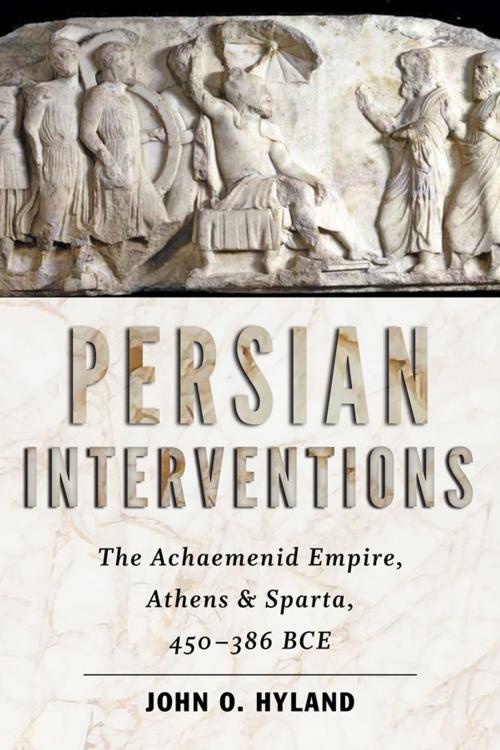Persian Interventions
The Achaemenid Empire, Athens, and Sparta, 450−386 BCE
Nonfiction, History, Ancient History, Greece| Author: | John O. Hyland | ISBN: | 9781421423715 |
| Publisher: | Johns Hopkins University Press | Publication: | December 21, 2017 |
| Imprint: | Language: | English |
| Author: | John O. Hyland |
| ISBN: | 9781421423715 |
| Publisher: | Johns Hopkins University Press |
| Publication: | December 21, 2017 |
| Imprint: | |
| Language: | English |
Thirty years after Xerxes invaded Greece, the Achaemenid Persian Empire ended its long war with Athens. For the next four decades, the Persians tolerated Athenian control of their former tributaries, the Ionian Greek cities of western Anatolia. But during the Peloponnesian War, Persia reclaimed Ionia and funded a Spartan fleet to overthrow Athenian power. It took eight long years for Persia to triumph, and Sparta then turned on its benefactors, prompting Persia to transfer aid to Athens in the Corinthian War. The peace of 386 reiterated imperial control of Ionia and compelled both Sparta and Athens to endorse a Persian promise of autonomy for Greeks outside Asia.
In Persian Interventions, John O. Hyland challenges earlier studies that assume Persia played Athens against Sparta in a defensive balancing act. He argues instead for a new interpretation of Persian imperialism, one involving long-term efforts to extend diplomatic and economic patronage over Greek clients beyond the northwestern frontier. Achaemenid kings, he asserts, were less interested in Ionia for its own sake than in the accumulation of influence over Athens, Sparta, or both, which allowed them to advertise Persia’s claim to universal power while limiting the necessity of direct military commitment. The slow pace of intervention resulted from logistical constraints and occasional diplomatic blunders, rather than long-term plans to balance and undermine dangerous allies.
Persian Interventions examines this critical period in unprecedented depth, providing valuable new insights for the study of Achaemenid Persia and classical Greece. Its conclusions will interest not only specialists in both fields but also students of ancient and modern comparative historical imperialism.
Thirty years after Xerxes invaded Greece, the Achaemenid Persian Empire ended its long war with Athens. For the next four decades, the Persians tolerated Athenian control of their former tributaries, the Ionian Greek cities of western Anatolia. But during the Peloponnesian War, Persia reclaimed Ionia and funded a Spartan fleet to overthrow Athenian power. It took eight long years for Persia to triumph, and Sparta then turned on its benefactors, prompting Persia to transfer aid to Athens in the Corinthian War. The peace of 386 reiterated imperial control of Ionia and compelled both Sparta and Athens to endorse a Persian promise of autonomy for Greeks outside Asia.
In Persian Interventions, John O. Hyland challenges earlier studies that assume Persia played Athens against Sparta in a defensive balancing act. He argues instead for a new interpretation of Persian imperialism, one involving long-term efforts to extend diplomatic and economic patronage over Greek clients beyond the northwestern frontier. Achaemenid kings, he asserts, were less interested in Ionia for its own sake than in the accumulation of influence over Athens, Sparta, or both, which allowed them to advertise Persia’s claim to universal power while limiting the necessity of direct military commitment. The slow pace of intervention resulted from logistical constraints and occasional diplomatic blunders, rather than long-term plans to balance and undermine dangerous allies.
Persian Interventions examines this critical period in unprecedented depth, providing valuable new insights for the study of Achaemenid Persia and classical Greece. Its conclusions will interest not only specialists in both fields but also students of ancient and modern comparative historical imperialism.















